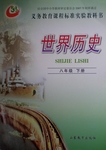题目内容
In many people’s eyes, middle school students are happy and carefree(无忧无虑). But is it the truth? And what students happy or unhappy?
To find out the answers, Li Jiahui, a student in Pinggu No. 3 Middle School, Beijing, spent six months students’ sense(感受) of happiness last year. The girl made a survey with questions such as “ Are you feeling happy?” and “What makes you unhappy?”
After studying the answers from 284 students, Li learned that___ 40 percent(百分之)of the students feel unhappy, and the from studies is the main reason for their unhappiness.
“More than 50 percent said they were under pressure and 70 percent get enough sleep,” Li said. “It shows that middle school students are not as happy people think. They worry a lot, and they can get angry easily.”
Li also said that over 90 percent say their happiness has to do with how much money they have. Instead, they care about their relationships(关系)with friends, teachers and parents. “Students always feel better when they get _ well with each other,” Li said.
After her survey, Li listed tips that may make students happier, such as: Treat(对待) yourself better, be kind and polite to your friends and relatives, and try new things.
To find out the answers, Li Jiahui, a student in Pinggu No. 3 Middle School, Beijing, spent six months students’ sense(感受) of happiness last year. The girl made a survey with questions such as “ Are you feeling happy?” and “What makes you unhappy?”
After studying the answers from 284 students, Li learned that___ 40 percent(百分之)of the students feel unhappy, and the from studies is the main reason for their unhappiness.
“More than 50 percent said they were under pressure and 70 percent get enough sleep,” Li said. “It shows that middle school students are not as happy people think. They worry a lot, and they can get angry easily.”
Li also said that over 90 percent say their happiness has to do with how much money they have. Instead, they care about their relationships(关系)with friends, teachers and parents. “Students always feel better when they get _ well with each other,” Li said.
After her survey, Li listed tips that may make students happier, such as: Treat(对待) yourself better, be kind and polite to your friends and relatives, and try new things.
| 小题1: |
|
| 小题2: |
|
| 小题3: |
|
| 小题4: |
|
| 小题5: |
|
| 小题6: |
|
| 小题7: |
|
| 小题8: |
|
| 小题9: |
|
| 小题10: |
|
小题1:C
小题2:B
小题3:C
小题4:A
小题5:A
小题6:D
小题7:D
小题8:B
小题9:A
小题10:B
试题分析:这篇短文主要介绍了李建辉就什么使学生们高兴或不高兴进行了一次调查。大约40%的学生感到不高兴,来自学习的压力是主要原因。百分之九十的人认为他们的幸福和他们有的钱多少无关。他们更看重与朋友之间是否相处融洽。
小题1:考查动词及语境的理解。什么使学生高兴或不高兴?A帮助,B想要C使,make+名词(代词)+形容词。使……怎样D保持,keep +名词(代词)+形容词。使……保持……状态。根据句意,故选C。
小题2:考查形容词及语境的理解。为了找出答案, 去年李嘉汇,北京平谷第三中学的学生花了六个月研究学生的幸福感。spend+时间/金钱+(in)V-ing。故选B
小题3:考查复合形容词及语境的理解。数字-名词的单数,构成复合形容词,根据句意,这个十五岁的女孩。故选C.
小题4:考查副词及语境的理解。根据上下文可知李得知大约40%的学生感到不高兴。故选A,大约。
小题5:考查名词及语境的理解。对于不愉快,来自学习的压力是主要原因。A压力B困难C知识D兴趣。根据句意,故选A。
小题6:考查助动词及语境的理解。根据上下文可知超过50%的受访者表示他们处在压力下,70%不能得到足够的睡眠。故选D
小题7:考查连词及语境的理解。这表示中学生不像父母想的一样高兴。not as/so …as,不像……一样。故选D。
小题8:考查不定代词及语境的理解。百分之九十的人认为他们的幸福和他们有的钱多少无关。have nothing to do with 与···无关。根据句意,故选B。
小题9:考查动词词组及语境的理解。学生们会感觉更好当他们相处融洽时。get along well with,相处融洽。根据句意,故选A
小题10:考查数量词及语境的理解。在调查后,李列出了许多使学生们高兴的建议。any,用于否定句或疑问句,表示任何一个,a number of,许多修饰可数名词复数。much许多,修饰不可数名词。a lot of 许多,既可以修饰可数名词又可以修饰不可数名词。根据句意及结构,故选B.

练习册系列答案
 探究与巩固河南科学技术出版社系列答案
探究与巩固河南科学技术出版社系列答案
相关题目




